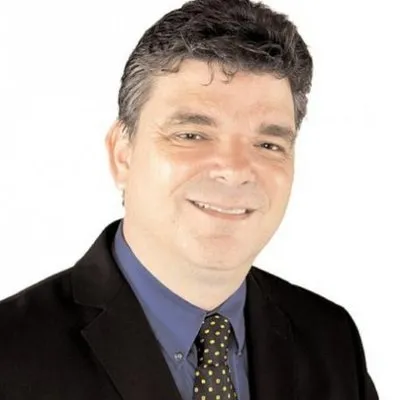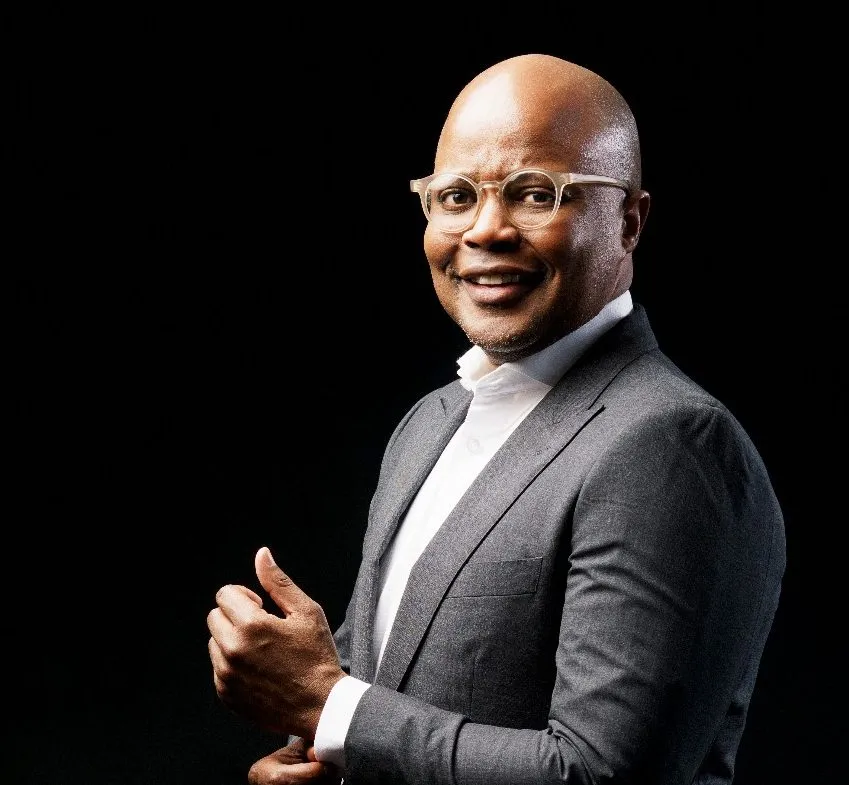As the dust settled on South Africa’s May elections, one of the country’s seasoned entrepreneurs was looking ahead – and getting on, quietly, with seeking transformative opportunities to connect other parts of the continent.
Ronnie Ntuli may be one of South Africa’s leading black entrepreneurs, but he maintains a low profile, reluctant to take the credit for his achievements. You won’t see him in the society pages of newspapers and magazines; he is frugal and focused on his mission to raise and allocate capital to infrastructure and railways. He is founder of Thelo, one of Africa’s leading railway and rolling stock infrastructure financiers; an outfit that has just helped seal a multi-billion-dollar deal that could alter the course of tfhe Ghanaian economy.
The railway management deal, worth $3.2bn, is to operate and develop the Western Railway Line in Ghana, with a view to increasing the movement of freight and passengers. Thelo has joined in a consortium with Germany’s national railway company Deutsche Bahn (DB) and Transtech Consult.
The upgraded standard-gauge rail system will run from the Port of Takoradi to Obuasi and Kumasi via Huni Valley. There will be a branch line from Dunkwa to Awaso. The operation will include infrastructure and rolling stock maintenance.
It is expected to transform Ghana’s existing rail network into a modern, robust and integrated railway system, the Thelo-DB consortium says in a statement. The project is a major part of Thelo’s pitch to be “the leading rolling stock financier and asset manager in Africa” – it also has operations in South Africa, Eswatini, Mozambique, Tanzania and Zambia.
At present Ghana is having to move large loads of minerals, including bauxite and manganese, along the Western corridor by road, as the existing narrow-gauge railway is unable to cope. Other commodities that need to be moved are oil products, timber, cocoa and cement.
It is all part of the slow, painstaking process of filling Africa’s yawning infrastructure gap, which will cost tens of billions of dollars. The World Bank, in a report published in 2023, estimated that sub-Saharan nations will have to more than double their investment in infrastructure to 7.1% of GDP if they are to achieve the Sustainable Development Goals.
The deal comes at a time when the continent is in the process of finding ways to exploit its vast natural wealth to accelerate growth. According to the African Development Bank’s first Africa’s Macroeconomic Performance and Outlook report for 2024, the overall real GDP growth of the continent is expected to average 3.8% and 4.2% in 2024 and 2025 respectively, higher than the global average growth of 2.9% and 3.2%.
“The continent is a hugely exciting place. But it’s also a centre of contradictions. It’s a very interesting paradox, in the sense that there’s been various narratives about the continent and its development even in recent times,” Ntuli says.
“We went through the ‘Africa rising’ narrative that was published everywhere – and then there was a decline, and then the ‘fastest-growing economy’. Then there was another decline. We always, as a continent, suffer from everyone else’s flu. The reason I put it that way is that there is a sense of optimism that is prevailing around the continent today – but I take that sense of optimism with a degree of circumspection.”
Ntuli reckons there is a lot more capital around for infrastructure than many people think.
“The fallacy that goes around is that there’s no money for these initiatives. It’s a proper lie. Why do I put it that way? Money follows opportunities, so our responsibility, or the responsibility of our governments on the continent, is to create an environment where capital is willing to find opportunities in these jurisdictions,” he says.
“There is surplus liquidity in the world today. There is a lot of money looking for a credible home, so there is a lot of capital that’s interested. We have to create the environment that gives security of tenure: that’s a very important thing and it’s very important that our governments understand that. And as Africans ourselves we have to package the opportunity in a manner that demonstrates viability.”
On a broader scale Ntuli, a member of the African Export-Import Bank board, hopes the railway investment will help smooth the continent’s long-term aims expressed in the African Continental Free Trade Area (AfCFTA) process, which promises more trade in a continent by removing tariffs.
The AfCFTA launched on 1 January 2021. It has struggled in many ways against the reams of paperwork at borders and a dearth of infrastructure to move goods, but Ntuli is a firm believer.
“I think the AfCFTA is a critically important initiative. I would argue that it is the single most important initiative after the independence of individual countries on the continent. That’s how seminal I would say it is. As a continent we have the opportunity of presenting to ourselves, and to the world, a huge consumer market. If you’re going to develop real industrial capacity, inevitably you need a market. What the AfCFTA does, as a starting point, is that it triggers the opportunity for the continent as a market of over a billion people,” he says.
“I have the highest degree of confidence and faith in the leadership of the AfCFTA secretariat. Without an ounce of doubt – and we had the honour of interacting with them in various guises – I have 100% confidence in them. I know they have the correct outlook in terms of opening up the continent’s markets. But how? I’m not a trade diplomat. I would be lying if I said I know what is the best path.”
The long and winding track
Indeed, a career in connecting the continent was not always an inevitability for the modest entrepreneur.
“Like with most children, you go through different career aspirations. I’ve had so many and, in some ways, maybe failed in many of them. I ended up here which is in itself very complex. It’s a journey, it is not an easy journey by any stretch of the imagination. It’s a very difficult journey,” he says.
“Throughout my life, I have encountered a common question: what is the starting point? However, there is never a clear starting point. Every day, it feels like everything I have done throughout my life has led me to this moment. I used to hear this expression, but I never fully understood what it meant. It’s like constructing a building: you can’t pinpoint one exact moment to start measuring from. Do you measure from the day the architect designed it? The day the first brick was laid? Or from the day the developer conceptualised it? It’s difficult to determine what the starting point truly is.”
A starting point presented itself to Ntuli in his teenage years. He won a scholarship to study law in Scotland.
In the early 1990s, Ntuli was one of a generation of young South Africans studying around the world with a view to return home to help build a brighter future in their soon-to-be democratic country.
The South African elections of 27 April 1994 paved the way for Nelson Mandela to be inaugurated, in May at the Union Buildings in Pretoria, as the country’s first democratically-elected president.
With a law degree from Edinburgh University, the way was clear for Ntuli to become a legal eagle back home; but fate took a hand.
“The funny thing is in life, where I think I’ve been really lucky, is that every obstacle has kind of represented an opportunity. I had to make a decision either to be in Scotland and practice law, or to come back home. It was a time of transition in South Africa – but one thing I was certain about is that I didn’t want to spend my entire life in Europe. I was there for education, and I was very clear that I wanted to come back to this continent,” he says.
“So, I came back. Firstly, I did not do law because I wanted to practice law; the honest truth is that I did law because my mother wanted me to study law. I am glad she did, because it’s a discipline – it’s not a subject. It is a way of thinking which is very valuable.
So, when I came back to South Africa, if I wanted to practise, I would have had to do a conversion [course and examination] and I wasn’t really interested in doing a conversion. The question was then: what do you do? I always had an entrepreneurial bug, so I used that decision point as a way of diving into business.”
In the early days of democracy in South Africa, Ntuli dived into business with a will. At the age of 29 the Johannesburg Chamber of Commerce elected him as its president. He admits, though, that his career as an entrepreneur and investor has seen setbacks along the way.
“Where you fall you have to pick yourself up properly. It has happened to me many times. There were times when I was asking myself if it’s really worth it. What am I doing? And during those times people write you off and say: ‘he’s done for!’
“Many would say it’s not possible, it’s not doable. I have had close friends who would say to me, with the best of intentions: ‘Who would let you do railways in their country?’ They were well intentioned. You have to kill the voice of doubt and carry on,” he says.
“In many ways I’ve been fortunate. I think I’ve worked hard; I really do, and I haven’t been afraid to express ideas, and I think some of those ideas have resonated with persons in charge,” he says.
Opportunity closer to home
Now, Ntuli is thinking of bringing that can-do attitude and solutions-oriented approach to the deep infrastructure problems within his own country. Ntuli thinks it a positive sign that Transnet, South Africa’s defective and indebted state-owned transport company, is opening up to the involvement of private railway companies in the network.
“In effect, South Africa’s railway, port system and pipelines have been the domain of Transnet and they effectively held a monopoly. So, their intention is to open up the national railway system to bring in private-sector operators.
“The other thing that’s important is what we call operational efficiencies. We have to introduce a lot more efficiency to operations. We have to be able to move freight and people in a more efficient manner and that is a railway technical solution, in order to upscale efficiency.”
The other week, South Africa’s Progressive Business Forum handed Ntuli a lifetime achievement award. Part of this legacy is his plan to train people in infrastructure development skills in the countries his company is working in.
“If, on the day I die, we have got a whole series of people who become technical experts in various fields in railways, I’ll be happy,” he says.
Want to continue reading? Subscribe today.
You've read all your free articles for this month! Subscribe now to enjoy full access to our content.
Digital Monthly
£8.00 / month
Receive full unlimited access to our articles, opinions, podcasts and more.
Digital Yearly
£70.00 / year
Our best value offer - save £26 and gain access to all of our digital content for an entire year!

 Sign in with Google
Sign in with Google 



